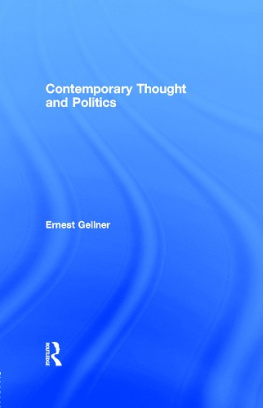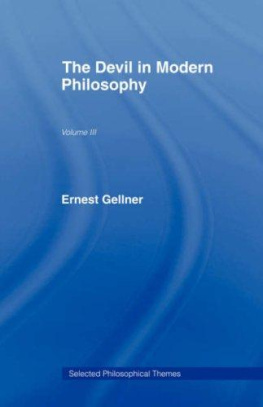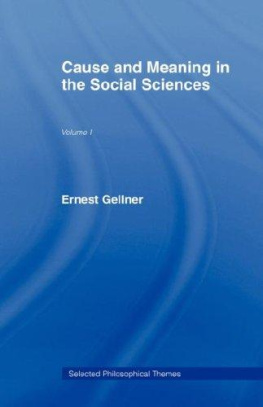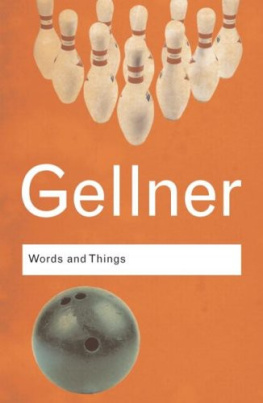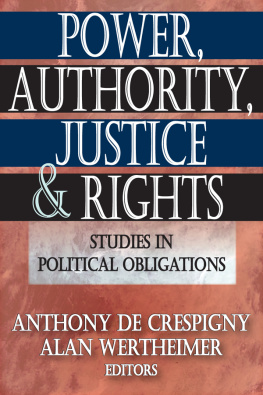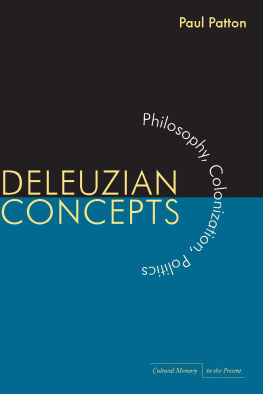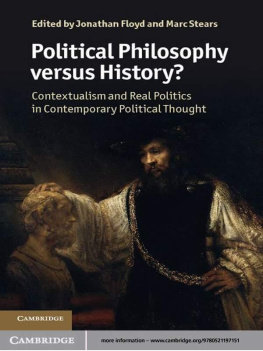Ernest Gellner - Contemporary Thought and Politics (Selected Philosophical Themes)
Here you can read online Ernest Gellner - Contemporary Thought and Politics (Selected Philosophical Themes) full text of the book (entire story) in english for free. Download pdf and epub, get meaning, cover and reviews about this ebook. year: 2003, publisher: Routledge, genre: Politics. Description of the work, (preface) as well as reviews are available. Best literature library LitArk.com created for fans of good reading and offers a wide selection of genres:
Romance novel
Science fiction
Adventure
Detective
Science
History
Home and family
Prose
Art
Politics
Computer
Non-fiction
Religion
Business
Children
Humor
Choose a favorite category and find really read worthwhile books. Enjoy immersion in the world of imagination, feel the emotions of the characters or learn something new for yourself, make an fascinating discovery.
- Book:Contemporary Thought and Politics (Selected Philosophical Themes)
- Author:
- Publisher:Routledge
- Genre:
- Year:2003
- Rating:3 / 5
- Favourites:Add to favourites
- Your mark:
- 60
- 1
- 2
- 3
- 4
- 5
Contemporary Thought and Politics (Selected Philosophical Themes): summary, description and annotation
We offer to read an annotation, description, summary or preface (depends on what the author of the book "Contemporary Thought and Politics (Selected Philosophical Themes)" wrote himself). If you haven't found the necessary information about the book — write in the comments, we will try to find it.
Ernest Gellner: author's other books
Who wrote Contemporary Thought and Politics (Selected Philosophical Themes)? Find out the surname, the name of the author of the book and a list of all author's works by series.
Contemporary Thought and Politics (Selected Philosophical Themes) — read online for free the complete book (whole text) full work
Below is the text of the book, divided by pages. System saving the place of the last page read, allows you to conveniently read the book "Contemporary Thought and Politics (Selected Philosophical Themes)" online for free, without having to search again every time where you left off. Put a bookmark, and you can go to the page where you finished reading at any time.
Font size:
Interval:
Bookmark:
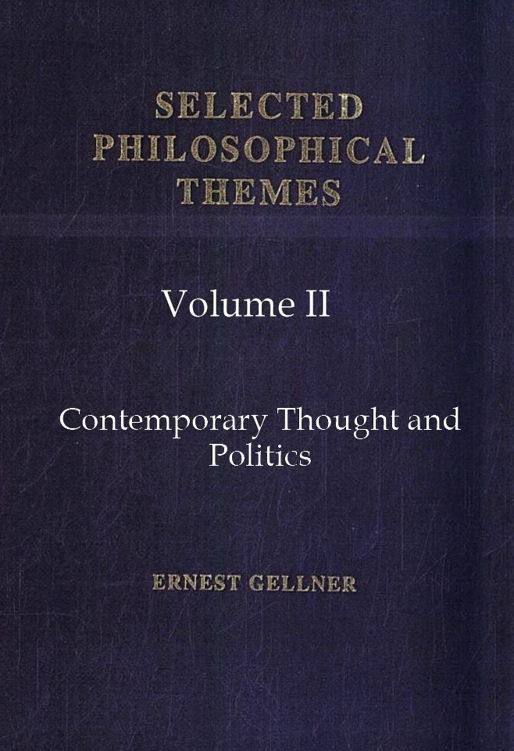
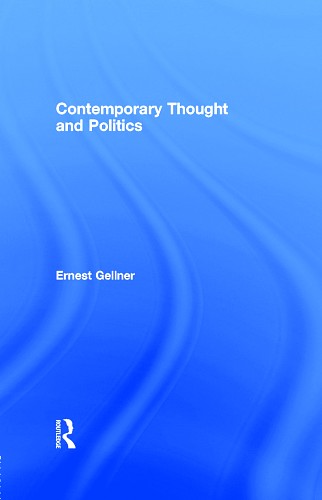
VOLUME I Cause and Meaning in the Social Sciences
VOLUME II Contemporary Thought and Politics
VOLUME III The Devil in Modern Philosophy
Volume II
Ernest Gellner

LONDON AND NEW YOR K
First published 1974 by Routledge & Kegan Paul Ltd .
This edition published 200 by Routledg e 11 New Fetter Lane, London EC4P 4E E
Simultaneously published in the USA and Canad a by Routledg e 29 West 35th Street, New York, NY 1000
Routledge is an imprint of the Taylor & Francis Group
This edition published in the Taylor & Francis e-Library, 2005.
To purchase your own copy of this or any of Taylor & Francis or Routledges collection of thousands of eBooks please go to www.eBookstore.tandf.co.uk.
1974 Ernest Gellner
All rights reserved. No part of this book may be reprinted or reproduced or utilised in any form or by any electronic, mechanical, or other means, now known or hereafter invented, including photocopying and recording, or in any information storage or retrieval system, without permission in writing from the publishers.
British Library Cataloguing in Publication Data
A catalogue record for this book is available from the British Library
Library of Congress Cataloging in Publication Data
ISBN 0-203-00921-5 Master e-book ISB N
ISBN 0-415-30295-1 (set ) ISBN 0-415-30297-8 (volume II )
Preface vi Acknowledgments ix
1 Prepare to meet thy doom A sermon on the ambivalences of progress, reason, liberty, equality and fraternity 2 Myth, ideology and revolution 3 Democracy and industrialization 4 Contemporary thought and politics 5 Behind the barricades at LSE 6 The panther and the dove Reflections on rebelliousness and its milieux 7 How to live in anarchy 8 The concept of a story 9 Our current sense of history 10 Ernst Kolman: or, knowledge and communism 11 Scale and nation 12 The pluralist anti-levellers of Prague 13 The dangers of tolerance 14 On democracy in France
Sources Index of names Index of subjects
The title of the present collection, Contemporary thought and politics, adverts to the unifying idea in it. Heinrich Heine posed the question, what is the moral import of this theory?, when dealing with religion, ideology, politics, or metaphysics. Germany, he argued, prepares for war by philosophizing. Gellner seeks the moral and political implications of contemporary climates of opinion. And from the most universalist left-wing rebel to the most parochial nationalist, he feels, they have all succumbed to the attraction of seemingly sophisticated ideas which are facile and easy to master. He centres on the idea shared by far right and far left political ideologists, by some philosophers and by some scientists: you can consider any theory from both within and without; from within it will offer its own justification (i.e. the question will not arise), and from without you may be able to view its limits. With this neat device you can have your cake and eat it too; you may hold any easy theory that looks sophisticated enough. The student who rebels by day and goes to his snug home at night only echoes his professor who pretends to be incompetent to criticize the ideas he expounds. Mock-modesty, mock-neutrality, mock-tolerance, open the way for the doctrine that truth does not matter but commitment doesan irrational and violent corollary. The conclusion Gellner draws (in chapter 13 ) is both moral and political, both private and public: do not tolerate empty phraseology! Of course, encounter it not with physical violence but with careful, level-headed yet powerful words. We think Gellners words rise to his own standards.
But Gellner is known to the reading public mainly as a philosopher and a scourge of other philosophers. Whence his interest in politics? The most general answer has to be that in all his work Gellner likes to observe ways of life and systems of thought. Clearly, the views of others and their structures of justification fascinate him because he is struggling to work out his own views and supporting structures. Yet to understand why he has written relatively little about such matters as the universal religions and quite a lot about politics it is not enough to cite personal predilection. Further enlightenment may emerge from setting the author against his background, in his time, and in his philosophical milieu.
To begin with, background. Gellner came to England from Czechoslovakia in 1939 when he was thirteen. At seventeen he went up to Oxford, to Lord Lindsays Balliol, to read PPE. After a brief period of teaching at Edinburgh he settled down at the London School of Economics of Laski, then Oakeshott, of Popper and other politically conscious academics of various stripes. It would be difficult to have this background and not be interested in politics.
What of timing? Gellner entered academic life in the 1940s, a period of intense political upheaval in Britain and Europe. Mr Attlees first administration came and went. There was controversy about the future of socialism. Czechoslovakia and other Eastern European countries disappeared behind the Iron Curtain. There was controversy about the relationship between socialism and communism. Gellner also visited America in the early 1950s, when McCarthyism was at its height. There was controversy about controlling the excesses of anti-communist zeal. Khrushchevs speech dethroning Stalin was followed closely by Hungary and by Suez. In Britain, at least, the result was the coming into being of the original New Left, with its journals and coffee houses. As an erstwhile socialist, Gellner seems to have been drawn towards all this, although ones impression is that he was never actually part of it.
But what seems directly to have triggered his first major political piece was the anti-political attitudes of his Oxford philosophy background. Despite having won one of Oxfords highest philosophy awards, the John Locke prize, Gellner always seems to have held himself back from embracing Oxford philosophy. The full range of his reservations was only to be revealed in Words and Things (1959). A couple of years before that he took the chance to register some preliminary objections while writing about the collective volume Philosophy, Politics and Society ( ch. 4 , below). Oxford philosophy, or linguistic philosophy, denied both that it was a philosophy and that it endorsed a political philosophy. Gellner begins his career as an academic writer on politics by showing how these two positions add up to a political philosophy badly in need of criticism.
So much for beginnings. In the many subsequent papers, we see Gellner working out his own views. Gellners political philosophy might be described as an attempt to come to terms with his own profound discontent. Simple discontent with ones surroundings need not lead to an attempt to come to termsit may instead drive one to idealism, socialism, utopianism. Gellners discontent is profound because, while he is unhappy with idealism, socialism and utopianism, he is not less unhappy about the possibility of doing without them. Metaphysics, said Kant, is like a mistress to whom we return after a quarrel. For Gellner, the metaphysics of social reform, idealism and socialism, and the prayer for peace and serenity, are at once too desirable to do without and too dangerous to leave uncriticized. The danger is that of fanaticism and other forms of sanctioning disregard for the ordinary sufferings of ordinary people which daily surround us. This strong conflict throws Gellner into a reflective mood filled with self-irony, a mood of compassion curiously mixed with detachment. Consequently, one is uncertain as to how close to his own views is the mordant irony of his lay sermon Prepare to meet thy doom ( ch. 1 , below). In that piece he argues that on all utopian models the future is bleak. One can at least say that his gloomy prophecy did not at all discourage him from thinking that the future is still worth arguing about, fighting for. In Myth, ideology and revolution ( ch. 2 ) and The dangers of tolerance ( ch. 13 ) he distinguishes social pluralism from logical (or epistemological) pluralism, approving the former, not approving the latter. He hints, perhaps, in his How to live in anarchy ( ch. 7 ), that an anarchic balance of forces between the divers bleak possibilities is the best we have thus far!
Font size:
Interval:
Bookmark:
Similar books «Contemporary Thought and Politics (Selected Philosophical Themes)»
Look at similar books to Contemporary Thought and Politics (Selected Philosophical Themes). We have selected literature similar in name and meaning in the hope of providing readers with more options to find new, interesting, not yet read works.
Discussion, reviews of the book Contemporary Thought and Politics (Selected Philosophical Themes) and just readers' own opinions. Leave your comments, write what you think about the work, its meaning or the main characters. Specify what exactly you liked and what you didn't like, and why you think so.

